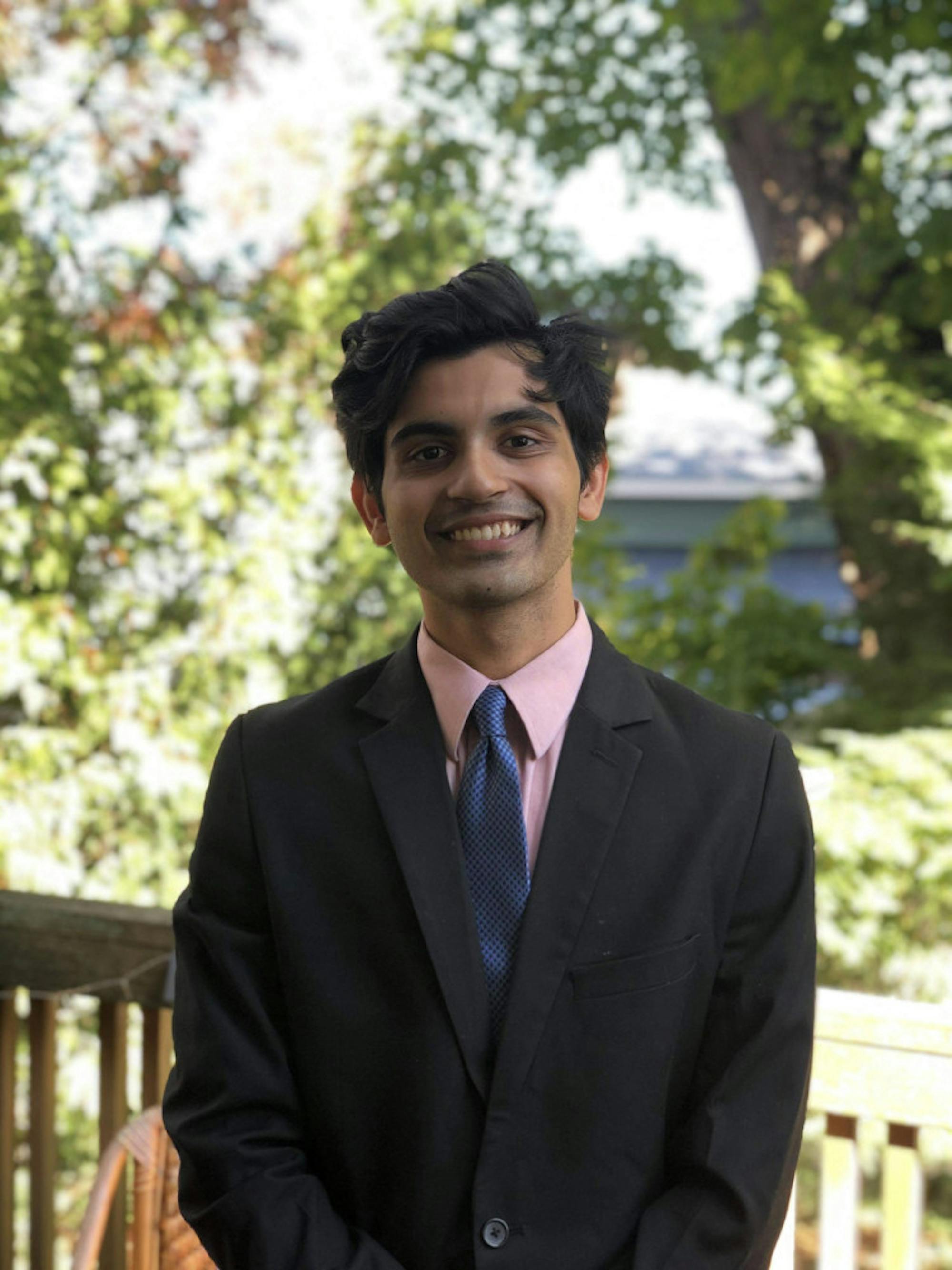After four demanding yet rewarding years, graduating senior Atrey Bhargava is ending his undergraduate career as the Wendell Philips Speaker of the 2021 Baccalaureate Ceremony at Tufts. Every year, this honor is awarded to one senior who demonstrates “both marked ability as a speaker and a high sense of public responsibility,” according to theUniversity Chaplaincy.
Bhargava, who grew up in Lucknow, India, spent seven years at a prestigious, rural boarding school. He said there was a strong sense of competition and conformity among students as everyone had to wear the same uniform and adhere to the same rules.
Wanting to seek more diverse educational resources and international learning opportunities, Bhargava applied Early Decision to Tufts and was admitted.
“Coming here, I realized that competition is not necessary for success. Competition is not necessary for doing well,” Bhargava said.
During his four years at Tufts, Bhargava, who studied economics and has a passion for government policy, was involved in extensive research, internships and volunteering focused on nonviolence and human rights issues.
Bhargava’s interest in the role of nonviolent activism started when he read Nelson Mandela's autobiography “Long Walk to Freedom” (1994). He was intrigued by Mandela's promotion of nonviolent protest tactics against apartheid in South Africa.
“I wanted to be able to understand the use of violence within nonviolence ... I wanted to understand how nonviolence works on a day-to-day [basis]. Is it even useful?” Bhargava said.
During the summer after his first year at Tufts, Bhargava went to Serbia as anOslo Scholarwith the Institute For Global Leadership. He worked at the Centre for Applied Nonviolent Action and Strategieswith Srdja Popovic,a Serbian political activist who helped overthrow the autocracy of Slobodan Milosevic. Bhargava’s job was to help devise strategies for protesters from all over the world and help them interpret the influence of new governmental policies.
During his time in Belgrade, Bhargava lived in a small studio apartment in the center of the city. He did not speak the local language and was alone for the first time. However, he still went to restaurants and bars to engage in local culture, explored different Serbian cities and read dense Balkan history while working for the center.
“[That was] a pretty fun experience. It [gave] me a regional ... knowledge about that area and it also helped me work in a super cool place and live an experience that I [had] not lived before,” Bhargava said.
During the same summer, Bhargava partnered with his friend, Uzair Sattar, another IGL scholar. Together they traveled to Pakistan to study water security and India’s role in causing the serious water scarcity in the region. The trip was a new experience for Bhargava. He had the opportunity to meet with government officials as well as everyday residents in the midst of political instability.
“All of those were experiences that I really treasure, and I remember the 12 days of the trip like it happened yesterday,” Bhargava said.
After conducting 24 interviews, Bhargava and Sattar wrote a 150 page long paper on the unequal distribution of water in Pakistan and published it in theYale Review of International Studies.
In his next three years at Tufts, Bhargava's involvement in student organizations and research continued.
Bhargava became an active member of the debate team and 180 Degrees Consulting. He led a research trip to Morocco to analyze the nation's relationship with trade unions, government and the monarchy. He was an intern at The Massachusetts Office of International Trade and Investment, where he helped prepare official proclamations for Governor Baker and even drafted an invitation letter to Indian Prime Minister Narendra Modi. Bhargava also studied abroad at the University of Oxford during his junior year. The following summer, Oxford's economics department sponsored Bhargava's research in how the pattern of lynchings affected Mexican migration to the United States from 1849 to 1926. This project allowed him to combine his academic interest in econometrics and his passion for human rights issues.
Thinking back on his four years at Tufts, Bhargava expresses great gratitude to Tufts for the university's financial support, various opportunities and outstanding professors. Bhargava specifically mentioned professor Ayesha Jalal, a mother figure to him, who inspires him to reflect critically on his endeavors in the world of academics, activism or life in general.
“[Professor Jalal] is special to me,” Bhargava said. “She is trying to make you deconstruct ... your thought process.”
Bhargava said that constantly looking out for opportunities and meeting new people was key to his rich college experience.
After graduation, Bhargava will become an analyst at Charles River Associates, where he will examine corporate competitions and antitrust practices in the United States, extending his passion for econometrics.
To the incoming students, especially international students, Bhargava said it is important to “put yourself out there.” This can be achieved by studying outside of the library, looking out for opportunities on bulletin boards and trying out new things even if it might just be “on a whim,” he said.
"Yes, putting yourself out [there] is difficult ... A lot of times I was failing everywhere, [but] all of the success is born out of that failure," Bhargava said.






